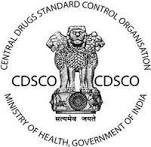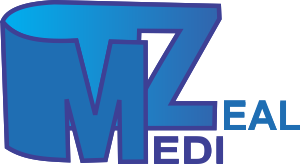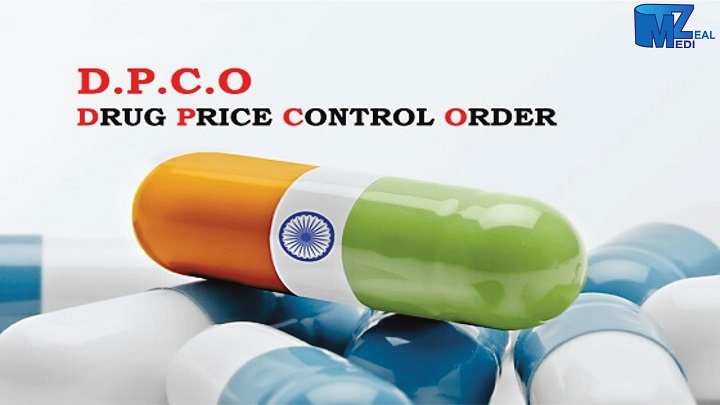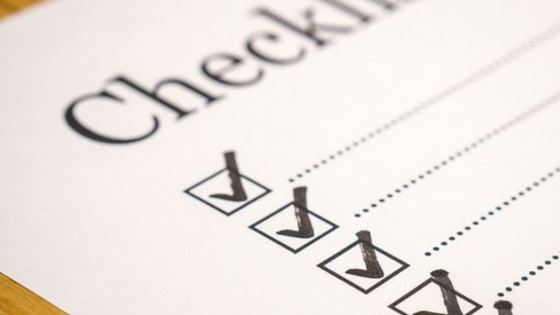ECHOS-P Tablets
ECHOS-P is used to relieve severe pain and swelling in joint stiffness, long-term inflamed joint, joint inflammation affecting the spine, pain or inflammation of ear, throat, or nose, dental pain, low back pain, and reproductive organs pain. This medicine works by blocking prostaglandin synthesis.
Another great product from house of MediZeal Pharma's PCD pharma franchise business
COMPOSITION
Aceclofenac 100 mg + Paracetamol 325 mg.
DESCRIPTION
Aceclofenac Paracetamol is a prescription medicine that belongs to a class of medicines called Nonsteroidal Anti-inflammatory Drugs. Nonsteroidal anti-inflammatory drugs, also called as NSAIDs, help reduce fever, decrease pain, and prevent clotting of blood. NSAIDs also reduce inflammation in the body when used in higher doses.
HOW TO USE:
Read the directions on the product label, patient guide, or medicine guide provided by the medicine company or your pharmacist before starting to use Aceclofenac Paracetamol Tablet. If you have any questions related to this medicine, ask your doctor or pharmacist. Eat this medicine as recommended by your doctor.
Aceclofenac Paracetamol Tablet is eaten with or after food. Aceclofenac Paracetamol tablets should be taken with a sufficient amount of liquid.
Aceclofenac Paracetamol Tablet is eaten Aceclofenac Paracetamol tablet should be taken two times a day, one tablet in the morning and one tablet in the evening.
INDICATION
- Joint pain
- Fever
- Toothache
- Cold
- Cephalalgia
- Rheumatoid arthritis
- Ankylosing spondylitis
- Osteoarthritis
- Periarthritis of scapulohumerous
- Lumbago
- Ischiadynia
- Pain caused by nonaticular rheutism
- Periods pain
Side Effects
- Drowsiness
- Dyspepsia
- Swollen facial features
- Allergic reactions
Your doctor has prescribed Aceclofenac Paracetamol Tablet because they judge that the benefit is greater than the risk posed by side-effects. Many people using this medicine do not have serious side-effects. This page does not list all possible side-effects of Aceclofenac Paracetamol Tablet.
PRECAUTIONS:
Before you use Aceclofenac Paracetamol, tell your doctor of your medical and health history including the following:
allergic reaction
difficulty in breathing
hives
inflammation of the mucous membrane
stomach and intestinal disorders (perforation, bleeding, ulcer)
swelling of the lower layer of skin
DRUG INTERACTIONS:
When two or more medicines are taken together, it can change how the medicines work and increase the risk of side-effects. In medical terms, this is called as a Drug Interaction.
This page does not contain all the possible interactions of Aceclofenac Paracetamol Tablet. Share a list of all medicines that you use with your doctor and pharmacist. Do not start, stop, or change the dose of any medicines without the approval of your doctor.
Quinolone Antibiotics
Your doctor's guidelines may need to be followed while taking this medicine along with quinolone antibiotics which are used to treat a variety of illnesses such as respiratory and urinary tract infections. The combined use of Aceclofenac Paracetamol with quinolones may increase the risk of developing convulsions.
Amethopterin
Aceclofenac Paracetamol Tablet interacts with amethopterin (methotrexate) which treats cancer, autoimmune diseases, and for medical abortions. The combined use of methotrexate and Aceclofenac Paracetamol shows a decrease in the elimination of methotrexate. Precaution should be taken if Aceclofenac Paracetamol and methotrexate are used within 24 hours of each other. As Aceclofenac Paracetamol can increase blood levels which may result in increased harmful effects.
Steroids
There may be an interaction of Aceclofenac Paracetamol with steroids (mifepristone, corticosteroids) which are used to treat a variety of inflammatory diseases and conditions. The combined use of mifepristone and Aceclofenac Paracetamol can cause a reduction in the effect of mifepristone. Combined therapy of aceclofenac with corticosteroids can increase the risk of stomach bleeding. Aceclofenac Paracetamol use should be avoided for 8-12 days after the use of mifepristone.
Cardiac Glycosides
Aceclofenac Paracetamol Tablet may interact with cardiac glycosides which are used to treat heart disease. The combined use of Aceclofenac Paracetamol with cardiac glycosides may worsen the risk of heart failure, reduce kidney efficiency, and increase blood glycoside level.
Nucleoside Reverse Transcriptase Inhibitors
Special instructions need to be followed while taking this medicine along with nucleoside reverse transcriptase inhibitors (zidovudine) which are used to treat HIV. The combined use of Aceclofenac Paracetamol with zidovudine increases the risk of bleeding into the joints and collection of blood outside the blood vessels in HIV(+) patients having a blood clotting disorder.
Antidiabetic Agents
Your doctor's guidelines may need to be followed while taking this medicine along with antidiabetic agents which are used to control increased blood sugar level. The combined use of aceclofenac with oral antidiabetic agents can cause a decrease and increase in blood sugar level.
Anti-Hypertensives
Aceclofenac Paracetamol Tablet interacts with anti-hypertensives which are used to treat high blood pressure of the body. The combined use of aceclofenac with anti-hypertensives drugs shows a reduction in the effect of anti-hypertensives.
Antiplatelet Agents and SSRIs
Special instructions need to be followed while taking this medicine along with Anti-platelet agents which are used to prevent the formation of blood clots and selective serotonin reuptake inhibitors which are used to treat the depressive disorder. The combined use of aceclofenac with anti-platelet agents and selective serotonin reuptake inhibitors shows an increase in the risk of stomach bleeding.
Diuretics
There may be an interaction of Aceclofenac Paracetamol with diuretics (potassium-sparing diuretics) which are used to promote diuresis, the increased production of urine. The combined use of diuretics with Aceclofenac Paracetamol reduces the diuretics effects. Also, diuretics increase the risk of kidney damage when used with Aceclofenac Paracetamol. While using the Aceclofenac Paracetamol with potassium-sparing diuretics, it is necessary to monitor blood potassium level in patients.
Other Nonsteroidal Anti-inflammatory Drugs
Aceclofenac Paracetamol Tablet may interact with nonsteroidal anti-inflammatory drugs (aspirin, cyclooxygenase-2 selective inhibitors, ibuprofen) which are used to reduce pain, fever and prevent blood clots. The combined use of Aceclofenac Paracetamol with other NSAIDs may increase the risk of side effects including stomach bleeding. Combined therapy with ibuprofen may increase the risk of bleeding into the joints and collection of blood outside the blood vessels in HIV(+) patients having a blood clotting disorder.
Immunosuppressants
Aceclofenac Paracetamol Tablet may interact with immunosuppressants (ciclosporin) which are used to prevent organ refusal after a kidney, heart, or liver transplant. The combined use of aceclofenac with ciclosporin increase the risk of kidney damage.
Antibacterial Agents
Your doctor's guidelines may need to be followed while taking this medicine along with antibacterial agents (chloramphenicol, rifampicin, and St. John's wort extract) which are used to treat bacterial infections. The combined use of chloramphenicol and paracetamol may affect the absorption of chloramphenicol mainly in patients suffering from malnutrition. Use of paracetamol with enzyme producing agents like rifampicin and St. John's wort extract (hypericum) may cause a decrease in the level of paracetamol.
Uricosuric Drugs
Special instructions need to be followed while taking this medicine along with uricosuric drugs (probenecid), which are used to treat severe pain, redness, and tenderness in joints and excess of uric acid. The combined use of probenecid and paracetamol shows decrease metabolism of paracetamol which can influence the clearance of paracetamol.
Anticonvulsants
Aceclofenac Paracetamol Tablet interacts with anticonvulsants (alcohol, barbiturates) which are used to treat epileptic seizures. The combined use of paracetamol and drugs which induce liver microsomal enzymes like anticonvulsants may increase the liver damage of paracetamol.
Antimanic Agents
There may be an interaction of Aceclofenac Paracetamol with antimanic agents (lithium) which are used to treat manic-depressive illness. The combined use of lithium and Aceclofenac Paracetamol shows a decrease in the elimination of lithium.
Antiepileptic Drugs
Aceclofenac Paracetamol Tablet may interact with antiepileptic drugs (phenytoin, phenobarbital, carbamazepine) which are used to treat epilepsy. The combined use of paracetamol with enzyme producing agents such as antiepileptic drugs shows a reduction in absorption of paracetamol approx. 60 %.
Anti-Coagulants
There may be an interaction of Aceclofenac Paracetamol with anticoagulants (warfarin and other coumarins) which are used to treat blood clots. The combined use of anticoagulants with paracetamol increases the effect of anticoagulants. Combined therapy of warfarin and other coumarins with prolonged regular use of paracetamol increases the risk of bleeding.
OVERDOSE:
If overdose is suspected, contact your local poison control center or emergency room immediately. US residents can call the US national poison hotline at 1-800-222-1222. Canadian residents should call their local poison control center directly. Symptoms of overdose may include: severe stomach/abdominal pain, severe vomiting, persistent diarrhea, a severe decrease in the amount of urine, or seizures.
STORAGE:
You should store Aceclofenac Paracetamol Tablet away from light. Store the medicine away from the reach of children and pets.
MISSED DOSE:
If you miss a dose, take it as soon as you remember. If it is near the time of the next dose, skip the missed dose and resume your usual dosing schedule. Do not double the dose to catch up.
NOTES:
Do not share this medication with others.This medication has been prescribed for your current condition only. Do not use it later for another infection. A different medication may be necessary in those cases.With prolonged treatment, laboratory and/or medical tests (e.g., kidney and liver function, complete blood counts) should be performed periodically to monitor your progress or check for side effects. Consult your doctor for more details.

Report Problems to the Central Drugs Standard Control Organization
You are encouraged to report negative side effects of prescription drugs to the CDSCO. Visit the CDSCO website.








